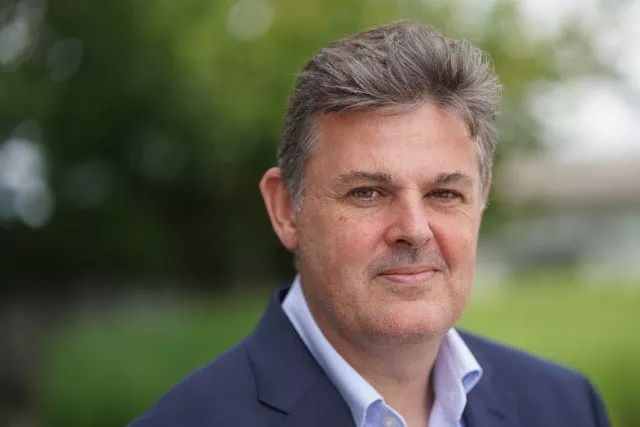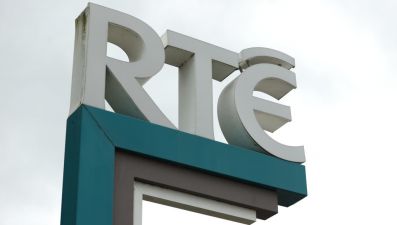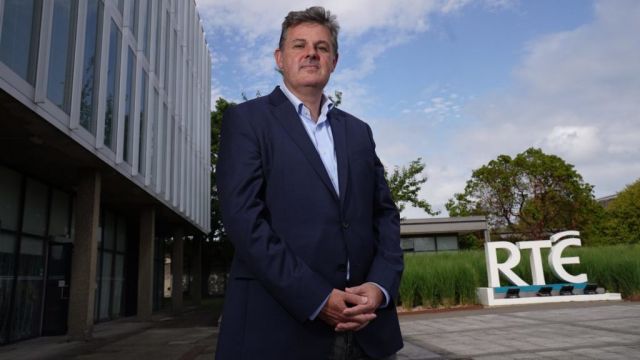RTÉ’s director-general has said he is “not breathing easy” despite a new Government plan which will see the national broadcaster receiving €725 million over three years.
On Wednesday, the Government agreed the new financing programme which will guarantee levels of funding for the crisis-hit station through a system of direct Exchequer top-ups to licence fee sales.
The new agreement means that – after expected income from licence fees is accounted for – the Government will directly provide the organisation with a projected €42 million next year.

The overall funding package, which is less than what the broadcaster asked for, followed Government consideration of RTÉ’s five-year reform strategy.
Director-general Kevin Bakhurst cautioned that the less-than-requested funding package may mean that reforms happen at a slower pace.
It follows a year of crisis management at the national broadcaster over a series of governance and financial scandals which further fuelled a years-long trend in declining TV licence revenue.
Speaking to the PA news agency, Mr Bakhurst said that while the new arrangements provide RTÉ with a degree of certainty over a number of years, there could be unforeseen challenges ahead.
He said: “Don’t forget: At the beginning of this year we were having to manage cash really carefully and there was a real danger we were going to run out of cash.
“With some assistance from Government, we’ve carefully controlled costs and made some cuts – and that hasn’t always been easy.
“But I’ve always said to staff that this is a phase, we need to sort out the issues that have arisen and make sure they never happen again.”
Asked about morale across the organisation, Mr Bakhurst said it was “really better after” the announcement.

“I think the reception has been extremely positive overall. People know we now have a degree of certainty.
“This is the first time in a generation that the organisation has had multi-year funding and can properly plan, commission from the independent sector, and know what the funding is.”
He added: “I’m not breathing easy, there’s always unforeseen things and I’m not complacent because Government asked if we were confident we can deliver this strategy with this funding and the answer is yes.
“So now we have to step up to the plate and do it.”
When pressed on why RTÉ had requested higher levels of funding when it now claims it can still deliver the reform strategy, Mr Bakhrust said: “Well, we wanted to do some of it faster.
“I remain confident we can deliver it but the timescale may be slightly longer.”

Over months of wrangling between senior Government figures on the future funding of the broadcaster, media minister Catherine Martin said she was committed to “grasping the nettle” of reforming RTÉ’s financing.
While the plan is intended to provide RTÉ with multi-annual certainty around its finances, it still retains the current TV licence fee system and will only represent a €2 million increase on direct Exchequer funding in 2025 when compared to this year.
Asked if he believed that the Government had “grasped the nettle” or if this was a more-of-the-same approach, Mr Bakhurst said: “I think it has been grasped – for the first time in, pretty much, a generation.”
He added: “The funding is enough for us to deliver the reform strategy and the multi-annual nature of it is absolutely critical for us to kick off the strategy.”
RTÉ has set out a five-year reform strategy but the Government’s new funding road map only covers three years.
It is to receive €225 million next year, which will rise to 240 million euros in 2026 and 260 million euros in 2027.

Mr Bakhurst has said he expects ongoing funding to remain around the higher 2027 levels.
Asked if he was concerned that the funding could be pulled following a change of Government or due to pressures on the Exchequer, the director-general said: “The one thing I’m confident about is that all the political parties are very committed to public-service broadcasting and to RTE.
“The ball’s in our court now and we need to show that we are continuing to change the organisation and delivering for audiences.”







